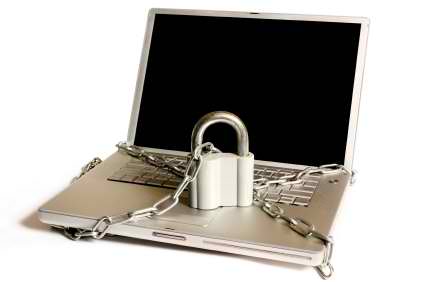 Internet security and safety is one of the top concerns for all PC users. Nowadays, we find ourselves sharing all kinds of personal information on the web from social security numbers to credit card numbers, and even our home addresses. There are hackers and other malevolant individuals whose sole intentions are to steal this invaluable data from unsuspecting Internet users. For this reason, there are steps that every computer user should take to best ensure that you keep your personal information safe and out of the wrong hands.
Internet security and safety is one of the top concerns for all PC users. Nowadays, we find ourselves sharing all kinds of personal information on the web from social security numbers to credit card numbers, and even our home addresses. There are hackers and other malevolant individuals whose sole intentions are to steal this invaluable data from unsuspecting Internet users. For this reason, there are steps that every computer user should take to best ensure that you keep your personal information safe and out of the wrong hands.
These five resources should help you take that extra step to protect your information and fend off the bad guys.
1) Securities and Exchange Commision (SEC) – How to Protect Yourself Online
The SEC has put together eight tips that can help all web users protect themselves on the Internet. Among these are the suggestions to use your own PC when possible, and to be extremely careful of what you download from the web.
2) Electronic Frontier Foundation (EFF) – Top 12 Ways to Protect Your Online Privacy
Though this article is now 10 years old, the privacy tips shared by the EFF are still very relevant and useful today. One suggestion of the Electronic Frontier Foundation is to examine the privacy policies and seals of the websites you visit. Before you share any private information with a website, you should verify the trustworthiness of the site.
3) Federal Communications Commission (FCC) – How to Protect Yourself Online
Another government agency that provides tips to protect yourself on the web is the FCC. Here you will read all about online spams and scams, as well as the best ways to avoid them. You will also find important ways you can “control spyware and malware that may come with spam.”
4) Readers’ Digest – 10 Ways to Protect Yourself Online
“As more Americans do more things online, Internet identity theft is a growing—and very costly—problem.” Readers’ Digest is here to help you learn what actions to take when you discover potentially dangerous spam email. One of the most important steps is to report the email so that others can also become aware and stay cautious.
5) Lifehacker – How to Protect Yourself from Online Fraud
In addition to helping you discover phishing scams, Lifehacker also helps uncover spear phishing attempts. In detail, spear phishing attempts are “targeted attacks to try and get additional information from individuals who may be at risk because their account at another organization may have been hacked.”
If you follow the tips in these resources you will better protect your personal information on the web and dramatically decrease your odds of falling victim to online fraud.
If you have additional tips for computer users to help protect themselves while on the Internet, please feel free to share in the comments below.